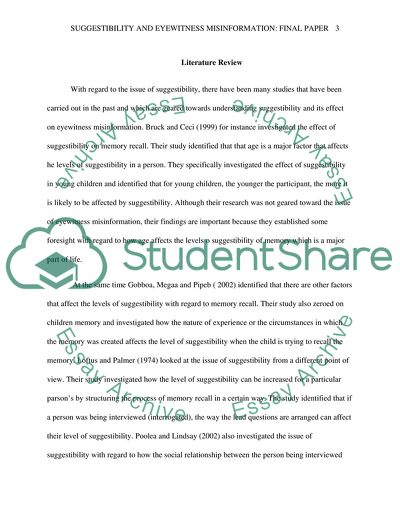Cite this document
(Suggestibility and Eyewitness Misinformation Research Proposal Example | Topics and Well Written Essays - 2000 words, n.d.)
Suggestibility and Eyewitness Misinformation Research Proposal Example | Topics and Well Written Essays - 2000 words. https://studentshare.org/law/1846028-final-research-paper
Suggestibility and Eyewitness Misinformation Research Proposal Example | Topics and Well Written Essays - 2000 words. https://studentshare.org/law/1846028-final-research-paper
(Suggestibility and Eyewitness Misinformation Research Proposal Example | Topics and Well Written Essays - 2000 Words)
Suggestibility and Eyewitness Misinformation Research Proposal Example | Topics and Well Written Essays - 2000 Words. https://studentshare.org/law/1846028-final-research-paper.
Suggestibility and Eyewitness Misinformation Research Proposal Example | Topics and Well Written Essays - 2000 Words. https://studentshare.org/law/1846028-final-research-paper.
“Suggestibility and Eyewitness Misinformation Research Proposal Example | Topics and Well Written Essays - 2000 Words”. https://studentshare.org/law/1846028-final-research-paper.


